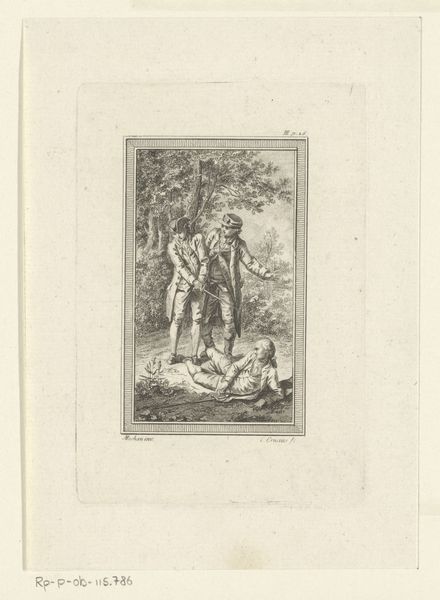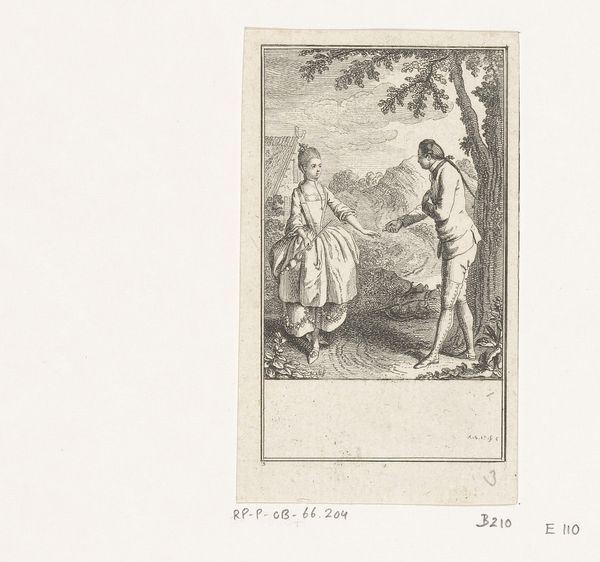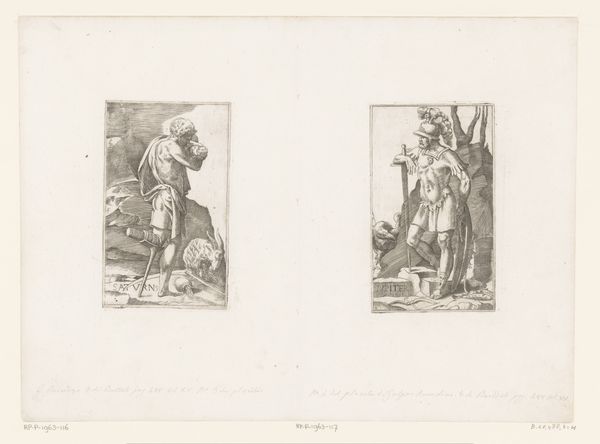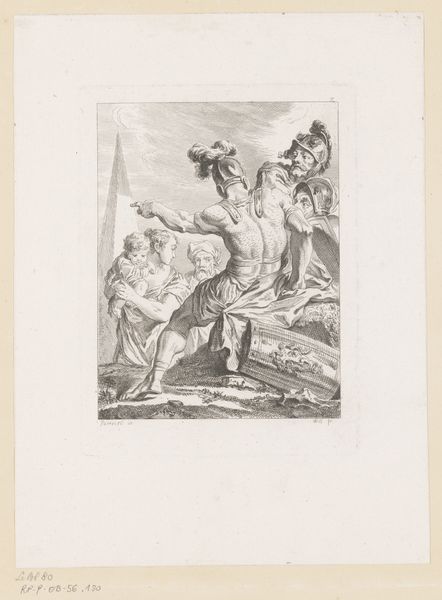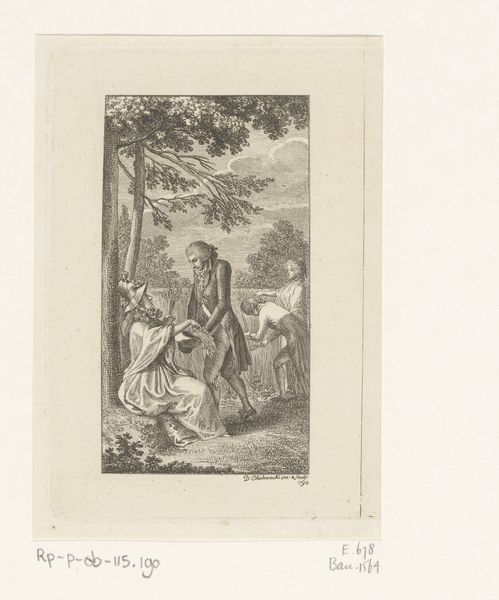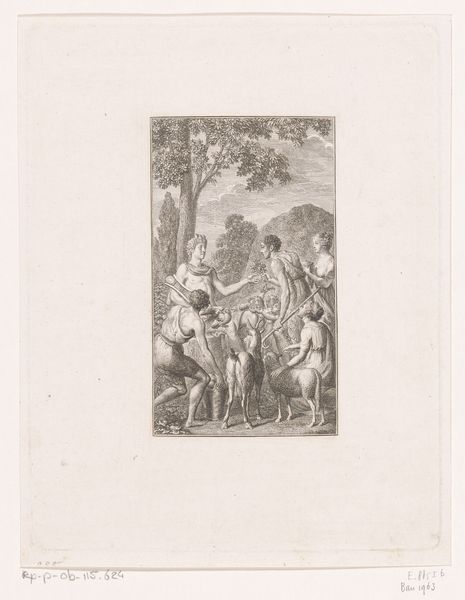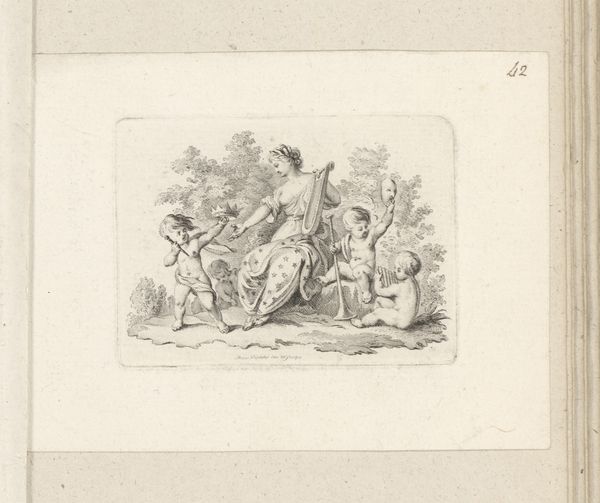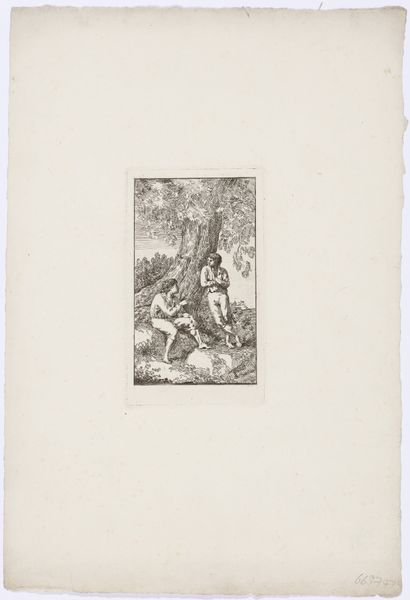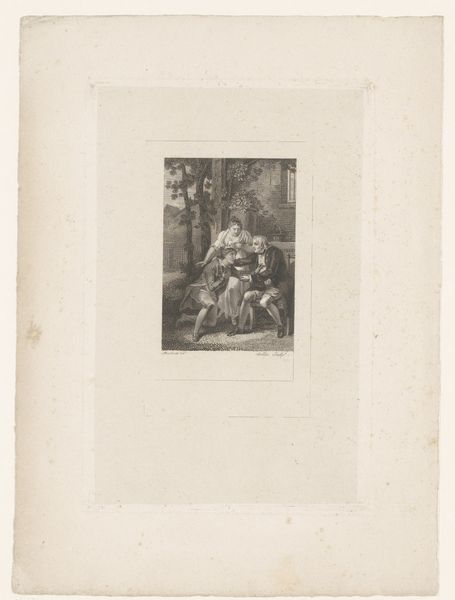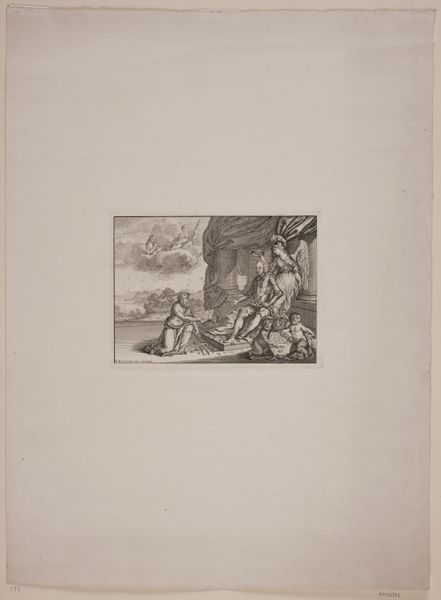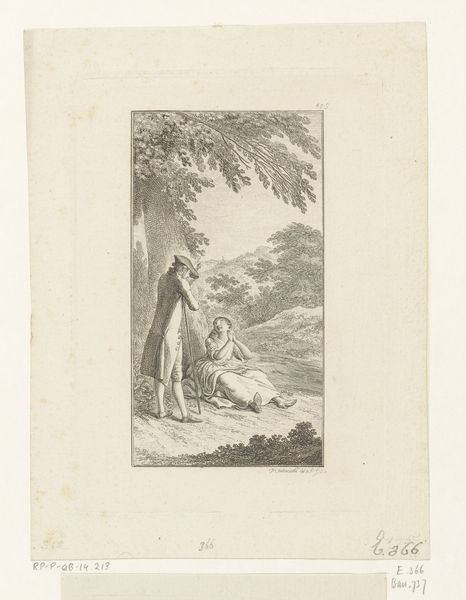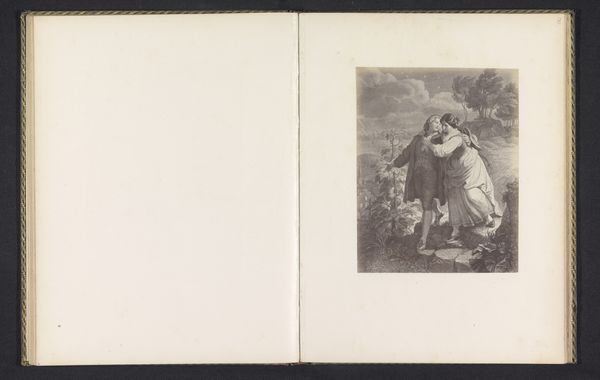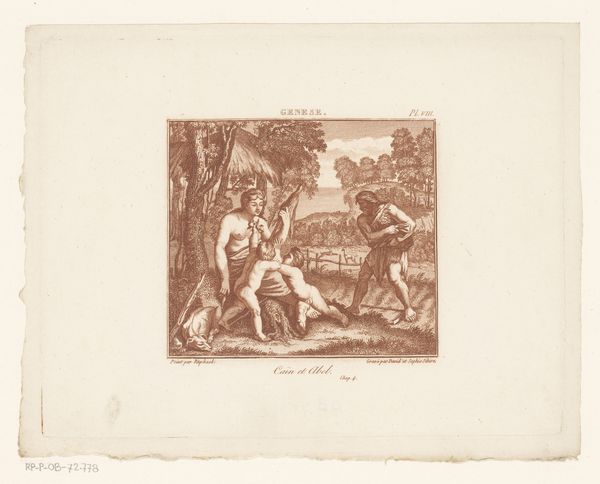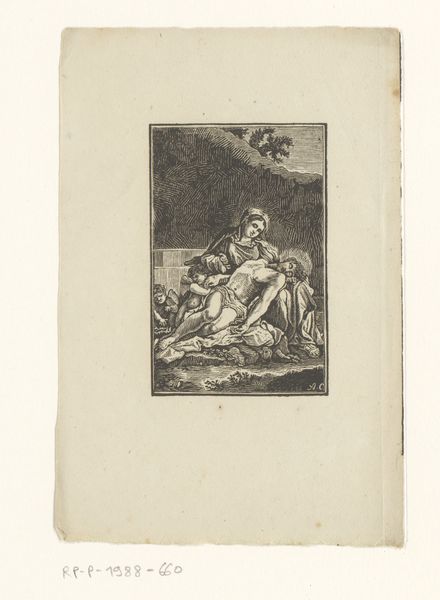
Lichtzinnigheid gevolgd door Armoede en Vertwijfeling 1779
0:00
0:00
danielnikolauschodowiecki
Rijksmuseum
Dimensions: height 110 mm, width 72 mm
Copyright: Rijks Museum: Open Domain
Curator: Right, let's look closer at this print by Daniel Nikolaus Chodowiecki. It's titled "Lichtzinnigheid gevolgd door Armoede en Vertwijfeling," made in 1779. The Rijksmuseum is lucky to have it. Editor: What strikes me immediately is the stark contrast! We've got this vibrant, almost playful figure leading the way, followed by a shrouded, sorrowful one. Curator: Exactly! The title translates to "Frivolity Followed by Poverty and Despair," and Chodowiecki uses those figures allegorically. He was really interested in moralizing narratives. See how "Frivolity" is light and winged, almost carelessly skipping forward? Editor: I do. She's radiant. But consider the period! The late 18th century teetered on the edge of revolutions—social upheaval and enlightenment ideals questioning established orders. Was Chodowiecki perhaps critiquing the aristocracy's decadence and warning of inevitable consequences? Curator: Precisely the kind of tensions Chodowiecki liked to play with. And look at the print's technique. The sharp lines of the engraving, the clear distinction between light and shadow, it reinforces that sense of…predestination. Frivolity almost blindly creating Despair in her wake. Editor: This isn't just about personal morality then, is it? It speaks to larger systemic issues. Poverty isn’t merely the consequence of individual choices, but is frequently constructed, a direct result of social and economic policies that favor some while disadvantaging others. Curator: You've touched upon the central point: Chodowiecki doesn't seem to suggest that the causes of poverty are external circumstances. The drawing looks like he intends to emphasize the idea of personal failing and weakness leading to predictable miserable effects. That's how art offers to consider alternative viewpoints and arguments, eh? Editor: That's why looking closely at artworks can be unsettling: Chodowiecki's work prompts reflection on privilege, on cause and effect. We must remember to ask whose interests these narratives serve, particularly from a contemporary lens. Curator: I’d say he offers more than just a quaint period drama for us. Editor: Yes, certainly. A work that can show that, perhaps unintentionally, is one to remember.
Comments
No comments
Be the first to comment and join the conversation on the ultimate creative platform.
